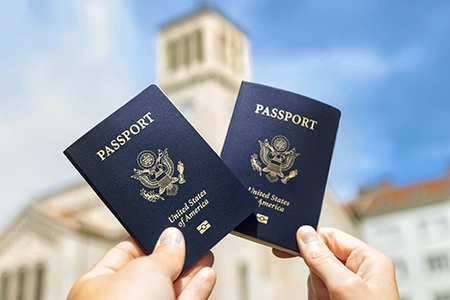Welcome to our comprehensive FAQ page on legal translation requirements in the UK. In today’s globalized world, accurate and certified translations are vital, especially in legal contexts where precision is paramount. Whether you’re dealing with visa applications, legal disputes, or academic documentation, understanding the nuances of legal translation is crucial. This FAQ aims to demystify the process, providing clear, concise answers to your most pressing questions about legal document translation in the UK. From certification processes to the role of professional bodies like the Chartered Institute of Linguists, we’ve got you covered. Dive in to ensure your translations meet the high standards required for legal and official use in the UK.

Before we begin…
Looking for fast, precise, and budget-friendly legal translation services? Do you need accurate and true certified translations? Look no further! We offer top-notch translation solutions at unbeatable rates. Contact us now to get a quote and let us help you communicate effectively in any language.
In the UK, legal requirements for translating documents include ensuring the translation is accurate and complete, reflecting the original document’s formatting, layout, and any stamps or seals. The translation must be certified by a qualified translator or translation agency, with certification ideally from a recognised organisation like the Chartered Institute of Linguists. This certification should include the translator’s name, signature, and contact details. In specific cases, such as for Welsh language translations, there may be additional requirements due to the unique status of Welsh in the UK. These standards are crucial for the translation’s reliability and acceptance in legal and official processes.
To certify a translation of a non-English document in the UK, select a qualified translator or translation agency, preferably one recognised by a professional body like the Chartered Institute of Linguists. The translator must accurately translate the document, maintaining the original layout and format. They must then provide a written certification on the translated document stating it is a “true and accurate translation of the original document”, including the translation date and their full name and contact details. Finally, the translator or their agency should sign and stamp the document, attaching this certification and a copy of the original document.
In the UK, translating documents into Welsh is not a general legal requirement, except in specific contexts. The law mandates translation into Welsh primarily for public sector organisations in Wales, where both English and Welsh are considered official languages. There is no legal obligation to provide translations in Welsh for private entities and in other parts of the UK. However, under the Equalities Act 2010, providing translations in Welsh can be seen as a measure to prevent discrimination against Welsh speakers, especially in contexts involving public services or legal matters in Wales.
A ‘true and accurate’ translation for legal purposes in the UK means the translation precisely reflects the original document’s content, meaning, and format. This includes the textual information, layout, non-text elements like stamps or seals, and the overall tone and intent of the original document. The translation must be complete, without omissions or additions, ensuring it conveys the same message as the original. This level of accuracy and completeness is essential to maintain the document’s integrity in legal contexts, where any deviation from the original could lead to misunderstandings or legal complications.
In the UK, translations can be certified by qualified translators or translation agencies recognised by professional bodies. The Chartered Institute of Linguists (CIOL) and the Institute of Translation and Interpreting (ITI) are key organisations. These bodies ensure that their members adhere to professional standards of accuracy and competence in translation. Translators whom these organisations or accredited agencies accredit are authorised to certify translations, assuring their reliability and suitability for legal and official purposes.
Yes, certified translations are typically necessary for UK visa applications when submitting documents not in English or Welsh. The UK visa authorities require a full and accurate translation in a different language to accompany supporting documents. This translation must be certified to attest to its accuracy, ensuring that it represents the original document. The certification process involves a statement by the translator or translation agency confirming the translation’s accuracy, along with their details and signature.
In the UK, a certified translation must include several key pieces of information: the statement declaring that the translation is a “true and accurate translation of the original document,” the date of the translation, and the full name and contact details of the translator or a representative of the translation company. Additionally, the certification should ideally be signed and stamped by the translator or the translation agency, adding an official seal of credibility and authenticity to the document. This ensures the translation is recognised and accepted for legal and official purposes.
To ensure the accuracy of a legal document translation in the UK, choose a qualified and experienced translator or a reputable translation agency, ideally one recognised by professional bodies like the Chartered Institute of Linguists or the Institute of Translation and Interpreting. Verify the translator’s credentials and experience in legal translations. Communicate your requirements and provide them with all necessary context. After completing the translation, consider having it reviewed by another professional translator for a second opinion. Additionally, ensure that the final document includes a certification statement from the translator, affirming its accuracy and completeness. This process helps maintain the translation’s integrity and reliability for legal purposes.
In UK legal disputes, certified translations are crucial in ensuring that all non-English documents are accurately and reliably represented in the legal process. They provide a trustworthy translation of legal documents like contracts, witness statements, or official certificates, ensuring that the content is understood correctly by all parties involved. This accuracy is vital for fair legal proceedings, as misunderstandings due to poor translation can lead to wrongful judgments or delays. The certification by a qualified translator attests to the translation’s accuracy, lending it credibility and making it acceptable in court or other legal settings. Thus, certified translations help uphold the principle of fairness and clarity in the UK legal system.
Yes, a translator’s signature and contact details are required in the UK for a certified translation. The certification must include the translator’s full name, signature, and contact information. This requirement ensures accountability and allows for verification of the translation’s authenticity and accuracy. Including these details is a key part of the certification process, affirming the reliability of the translation for legal and official use.
In the UK, not just any translation company can certify a document. The company or the translator responsible for the certification should be reputable and ideally accredited or recognised by a professional body like the Chartered Institute of Linguists or the Institute of Translation and Interpreting. This accreditation ensures that they adhere to professional standards and are competent in providing accurate translations. Certified translations require not just linguistic expertise but also an understanding of the legal nuances of the translated documents, so the translation company’s credibility and qualifications are crucial for the certification to be valid and accepted in legal and official contexts.
In UK legal contexts, inaccurate translations can have serious consequences. They can lead to misunderstandings and misinterpretations of legal documents, potentially affecting the outcome of legal cases or negotiations. Inaccurate translations might result in contractual disputes, wrongful legal judgments, or delays in legal proceedings. They can also lead to non-compliance with legal regulations, possibly resulting in legal penalties or sanctions. In immigration or asylum cases, inaccuracies could impact the decisions on applications.
Additionally, mistranslations undermine trust in the legal process. They can cause significant financial and reputational damage to the parties involved. Ensuring accuracy in legal translations is, therefore, crucial for the integrity and fairness of the legal system.
Certification adds credibility to a translation in the UK by providing an official assurance that the translation is accurate and reliable. When a qualified translator or a recognised translation agency certifies a document, they attest to their professional assessment that the translation is a true and complete representation of the original. This certification often includes the translator’s signature, contact details, and sometimes a stamp, which enhances the document’s authenticity and acceptability in legal and official settings. Such a formal endorsement is particularly important in legal, governmental, and academic contexts, where the stakes of inaccuracies can be high. The certification process thus instils confidence in the translation users, from legal professionals to governmental authorities, that the translated document is valid and trustworthy.
In the UK, translations are often required for academic purposes, especially for international students or academics submitting documents from non-English speaking countries. These documents can include academic transcripts, diplomas, certificates, and recommendation letters. For these documents to be recognised by educational institutions in the UK, they typically need to be translated into English and certified for accuracy. The certification assures the institution that the translation is a true and accurate representation of the original document, which is crucial for admissions, credit transfers, or meeting specific academic requirements. Therefore, for individuals with educational documents in languages other than English, obtaining a certified translation is a key step in their academic journey in the UK.
Certified translations support non-English speakers in UK legal processes by ensuring they can access accurate and understandable versions of legal documents in their language. This is crucial for their full understanding and participation in legal matters, as it helps overcome language barriers. Certified translations provide a reliable and official translation of key legal documents like court orders, legal notices, contracts, and evidentiary documents. This facilitates clear communication and informed decision-making for non-English speakers, enabling them to engage effectively with the legal system. Additionally, certified translations help uphold the principles of fairness and equality in the legal process, ensuring non-English speakers are not disadvantaged due to language differences.
To obtain a certified translation in the UK, select a qualified translator or agency, preferably accredited by a body like the Chartered Institute of Linguists. Provide the original document or a clear copy for translation. After the document is translated, it should be reviewed for accuracy. The translator or agency then certifies the translation, stating in writing that it is a true and accurate representation of the original, including the translation date and contact details. This statement is signed and, if applicable, stamped. The certified translation is provided to you, usually accompanied by a copy of the original document, ensuring it meets UK standards for official use.
The Equalities Act 2010 relates to translation in UK legal cases by addressing the need to prevent discrimination based on protected characteristics, such as race or language. In legal contexts, providing translation services or interpreters can be crucial to ensure that non-English speakers receive fair treatment and equal access to justice. While the Act doesn’t specifically mandate translations for all languages, offering translation assistance, especially in cases involving significant language barriers, aligns with the spirit of the Act to eliminate discrimination and promote equality. This is particularly relevant in public sector settings, where ensuring effective communication is essential for inclusivity and fairness.
In the UK, legally translated documents should closely mirror the original document’s formatting. This includes maintaining the original layout, structure, and non-text elements like stamps, seals, or logos. The translation should accurately reflect all aspects of the original, ensuring that it is linguistically correct and contextually appropriate. While there may not be specific formatting rules set in law, the key requirement is that the translation is a true and complete representation of the original. This attention to detail in formatting is essential for the document’s acceptance in legal and official contexts, as it helps preserve the integrity and intent of the original content.
The Chartered Institute of Linguists (CIOL) plays a significant role in UK document translation by setting professional standards and providing accreditation for translators. As a respected authority in the language and translation field, CIOL offers membership and qualifications to language professionals, ensuring they adhere to high standards of linguistic skill and ethical practice. For document translation, CIOL membership or accreditation is a mark of quality and reliability. Translators recognised by CIOL are deemed competent and trustworthy, which is particularly important for certified translations in legal and official contexts. The CIOL also contributes to the ongoing professional development of translators, helping maintain the quality and integrity of translation services in the UK.
To verify the qualifications of a translator for legal documents in the UK, you can take the following steps:
1. Check Professional Affiliations: Look for membership or accreditation with recognised professional bodies such as the Chartered Institute of Linguists (CIOL) or the Institute of Translation and Interpreting (ITI). These organisations maintain standards for professional translators.
2. Review Credentials and Experience: Ask about the translator’s qualifications, training, and experience, particularly in legal translation. Qualified translators should have relevant academic qualifications or professional certifications.
3. Ask for References or Samples: Request references or samples of previous work to assess their expertise and quality of work.
4. Confirm Language Pairs and Specialisation: Ensure the translator specialises in the specific language pair and has experience with the legal documents you need to be translated.
5. Inquire About Certification Process: For certified translations, verify the process they use for certification, ensuring it aligns with UK legal requirements.
By following these steps, you can confidently assess a translator’s ability to handle legal documents in the UK accurately and effectively.

Before you go…
Looking for fast, precise, and budget-friendly legal translation services? Do you need accurate and true certified translations? Look no further! We offer top-notch translation solutions at unbeatable rates. Contact us now to get a quote and let us help you communicate effectively in any language.
Follow Us on Your Favourite Social Network
Creating this comprehensive FAQ required a lot of time and effort. If you find the information useful, please consider sharing it on your favourite social network or following/subscribing to our social media profiles. Your support means the world to us!



